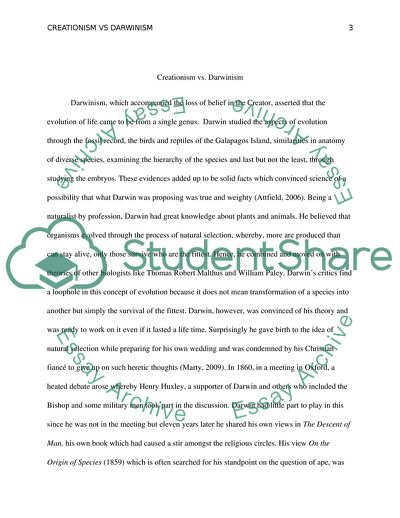Cite this document
(Creationism VS Darwinism Report Example | Topics and Well Written Essays - 1500 words, n.d.)
Creationism VS Darwinism Report Example | Topics and Well Written Essays - 1500 words. https://studentshare.org/sociology/1765204-creationism-vs-darwinism
Creationism VS Darwinism Report Example | Topics and Well Written Essays - 1500 words. https://studentshare.org/sociology/1765204-creationism-vs-darwinism
(Creationism VS Darwinism Report Example | Topics and Well Written Essays - 1500 Words)
Creationism VS Darwinism Report Example | Topics and Well Written Essays - 1500 Words. https://studentshare.org/sociology/1765204-creationism-vs-darwinism.
Creationism VS Darwinism Report Example | Topics and Well Written Essays - 1500 Words. https://studentshare.org/sociology/1765204-creationism-vs-darwinism.
“Creationism VS Darwinism Report Example | Topics and Well Written Essays - 1500 Words”. https://studentshare.org/sociology/1765204-creationism-vs-darwinism.


